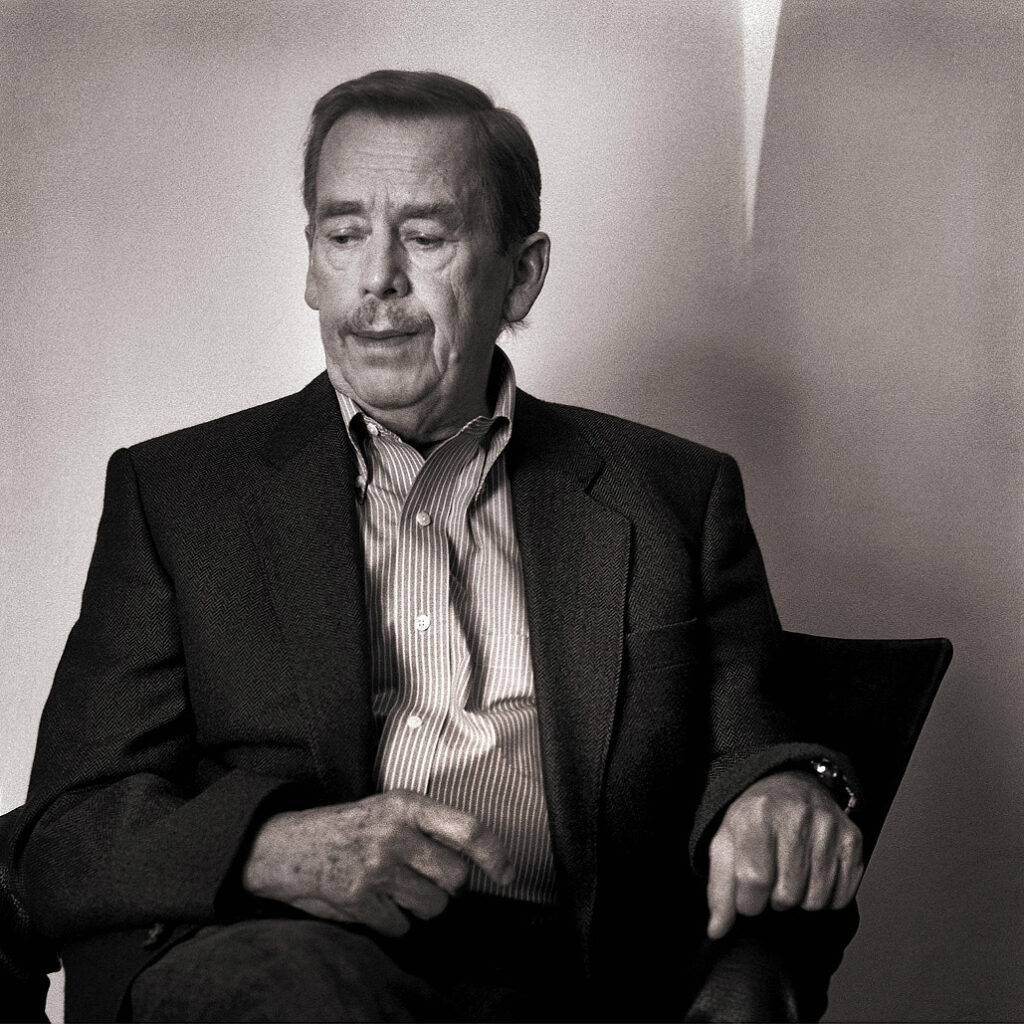
Watching the Trump lawyers’ impeachment defense, I was reminded again how closely life in Trumpworld matches life under the old Soviet bloc as described by dissidents like Vaclav Havel and Czeslaw Milosz: Everything is a lie, everyone knows it’s a lie, and everyone goes along with the lie anyway.
Thus they become both victims of the lie and partners in keeping it going.
In his classic essay “The Power of the Powerless,” Havel tells the story of a greengrocer. One day a sign arrives from the Party: “Workers of the world unite!” it says. The greengrocer knows the sign is meaningless, but he also knows that he must put it in his window
[By posting the sign] the greengrocer declares his loyalty… in the only way the regime is capable of hearing; that is, by accepting the prescribed ritual, by accepting appearances as reality, by accepting the given rules of the game. In doing so, however, he has himself become a player in the game, thus making it possible for the game to go on, for it to exist in the first place.
This also describes those who pretend to believe Trump’s lies because everyone they know pretends to believe them.
Trump is himself a product of a world of lies, one that’s long been inhabited by people across our society: you say what you must, act how you must, to get along. Every interaction becomes transactional, a form of sales.
Many of our children are being reared right now by the principle of “because you must,” so they can become the next generation of adults living a lie, assuming that it’s just the way it is: normal — which means the artificial becomes reality.
In his book The Captive Mind, Milosz describes a friend who had been a truth-seeking writer in his youth, but who had since succumbed to the artificial life:
In his desire to win approbation, he had simplified his picture to conform to the wishes of the Party. One compromise leads to a second, and a third, until at last, though everything one says may be perfectly logical, it no longer has anything in common with the flesh and blood of living people.
And Havel saw that consumerism could impose such soulless conformism too, as effectively as communism ever did:
Is it not true that the far-reaching adaptability to living a lie and the effortless spread of social auto-totality have some connection with the general unwillingness of consumption-oriented people to sacrifice some material certainties for the sake of their own spiritual and moral integrity? With their willingness to surrender higher values when faced with the trivializing temptations of modern civilization? With their vulnerability to the attractions of mass indifference? And in the end, is not the greyness and the emptiness of life in the post-totalitarian system only an inflated caricature of modern life in general? And do we not in fact stand (although in the external measures of civilization, we are far behind) as a kind of warning to the West, revealing to it its own latent tendencies?
“The attractions of mass indifference.” It sure sounds like what’s behind the blank unconcern over a President of the United States who tried to destroy democracy.